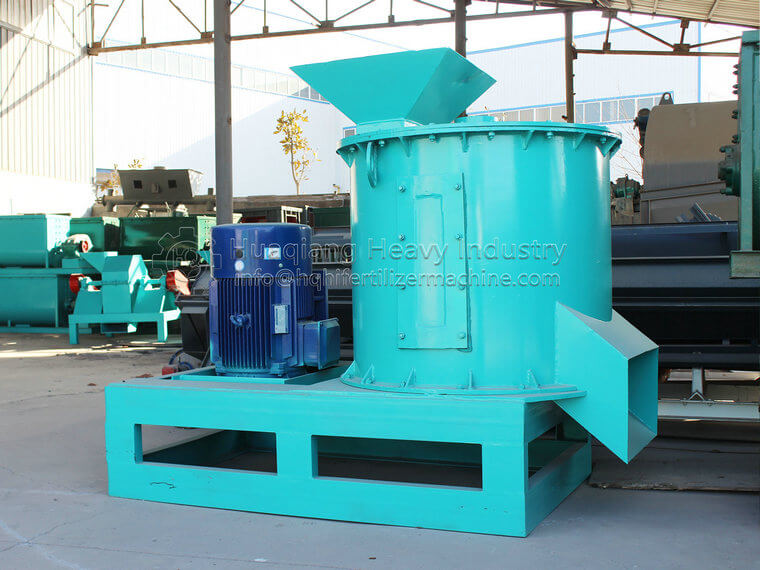Semi wet material grinder ferments mushroom sticks for processing fertilizers
Organic fertilizer crusher semi wet material crusher can also crush high wet materials, which is composed of two sets of hammer heads, so it can also be called double wet material crusher. Its basic structure is an improvement on the old hammer crusher and can be considered as a relatively new type of double crusher. This machine is a specialized model for washing coal and masonry. The organic fertilizer crusher model effectively solves the problem of high moisture content in materials. Even if the moisture content is high, the sample is easy to break and will not cause machine blockage. Because the double crusher is designed without a screen bottom and mesh, even if the moisture point of the material is large, it will not cause blockage. Even on rainy days, normal production can be carried out. In addition, although the coal crusher does not have a bottom screen, it uses two rotors for crushing, making the discharge particle size more uniform and ultrafine, which can be controlled below 2mm.
Mushroom stick organic fertilizer production equipment, especially for materials with high moisture content, has strong adaptability and should not be blocked. The feeding is smooth. The material enters from the feeding port and collides with the high-speed rotating chain inside the casing. After being impacted, the material is squeezed and broken, and then collides with the chain after hitting the inner wall of the casing. This way, during the falling process, it undergoes several impacts and becomes powder or particles below 3mm are discharged from the bottom.
The motor of the organic fertilizer crusher drives the spindle to rotate. The spindle has two bearing seats, which are installed at the upper and lower ends of the casing. The casing assembly is installed on the lower frame, with a rotor disc and chain installed on the main shaft. The feeding hopper is located on the upper part of the casing. For the convenience of loading and unloading the hammer head, a valve is opened on the casing for easy disassembly and maintenance.



.jpg)
.jpg)
.jpg)


.jpg)